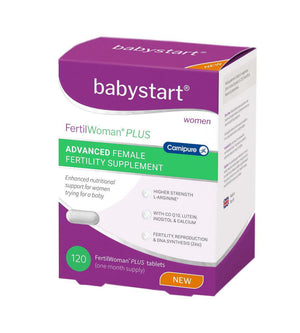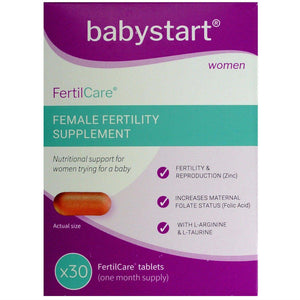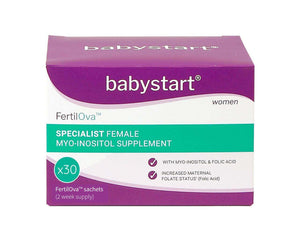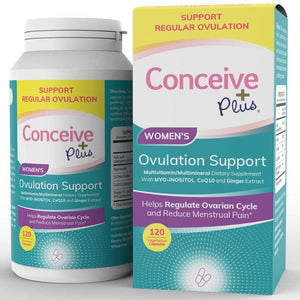Does Mirena Removal Impact Weight Loss?


Table of Contents
Related products
What is Mirena?
Mirena, a widely used intrauterine device (IUD), primarily serves as a long-term contraceptive method. It releases a hormone called levonorgestrel, which is effective in preventing pregnancy. This article delves into the potential impact of Mirena removal on weight changes, a subject of considerable interest among users. The ensuing discussion will explore how the device works, its typical side effects, and the body's response after its removal, with particular focus on weight fluctuations.
Mirena is classified as a hormonal IUD that releases small amounts of levonorgestrel directly into the uterine lining. This mechanism thins the endometrium and thickens cervical mucus, preventing sperm from reaching or fertilising an egg. Mirena is not only prescribed for contraception but is also utilised to treat heavy menstrual bleeding in women.
Common Side Effects of Mirena
Among the common side effects reported by Mirena users, weight gain is frequently discussed. Dr. Emily Lawson, an expert in reproductive health, notes, "While Mirena's systemic hormonal effects are lower compared to other forms of hormonal contraception, some patients may still experience weight gain as a side effect." It's crucial to consider that such side effects vary widely among individuals.
Reasons for Mirena Removal
The decision to remove Mirena typically arises from either the end of its effective lifespan (up to five years), a desire to conceive, or due to intolerable side effects such as pelvic pain or systemic symptoms like mood swings or weight changes. Dr. Lawson adds, "Patients often express concerns about long-term effects of synthetic hormones, including potential impacts on weight, which prompts discussions about removal."
Does Mirena Removal Impact Weight Loss?
No, Mirena removal does not typically impact weight loss directly. The impact of Mirena removal weight loss effects can vary from person to person. Mirena, a hormonal intrauterine device (IUD), may influence body weight due to the hormone levonorgestrel it releases. While some individuals report weight gain during the use of Mirena, this isn't a universal experience.
Upon removal of Mirena, any weight changes that occurred due to its use might reverse as the body returns to its natural hormonal balance. However, significant weight loss directly attributable to Mirena removal is not consistently documented in scientific research. Most studies suggest that any substantial weight changes are more likely influenced by other factors such as diet, exercise, and overall health rather than solely the presence or absence of the IUD.
For individuals concerned about weight fluctuations post-removal, maintaining a healthy lifestyle with balanced nutrition and regular physical activity is recommended. It's also advisable to consult with healthcare providers for personalized advice and to address any symptoms or concerns during the transition after Mirena's removal.
What are Factors Influencing Weight Gain and Loss?
Weight management is influenced by a complex interplay of dietary habits, physical activity, genetic predisposition, and hormonal balance. The removal of Mirena may lead to changes in body weight, which could be a return to the natural hormonal baseline prior to insertion.
Hormonal Changes Post-Mirena
When Mirena is removed, the body begins to readjust to its natural hormonal state, which can influence metabolic rate and body composition. "The cessation of levonorgestrel supply might lead to a temporary imbalance as the body readjusts, potentially affecting weight," states Dr. Hannah Singh, a gynaecologist specialising in hormonal therapies.
Scientific Evidence on Hormonal Contraception and Weight
The relationship between hormonal contraception like Mirena and weight is nuanced. Research varies, with some studies suggesting minimal impact on weight, while others cite weight gain as a significant concern for users. A comprehensive review by the Cochrane Database of Systematic Reviews found that most women do not experience significant weight gain attributable solely to hormonal IUDs. However, individual responses can differ, making it essential to monitor changes post-removal.
Each of these points underlines the core theme of exploring how the removal of Mirena might affect weight changes. The following sections will delve further into empirical data and personal experiences, enhancing understanding of this complex interaction.
What is the Evidence on Weight Changes Post-Mirena Removal?
Research into the effects of Mirena removal on weight presents a varied landscape. Several studies highlight that weight changes post-removal are often individual-specific and not solely attributable to the device itself. Dr. Susan Fletcher, an endocrinologist, explains, "The removal of Mirena typically results in hormonal fluctuations as the body readjusts to its natural hormonal cycle, which can temporarily influence weight."
A pivotal study published in the Journal of Women's Health observed women for six months post-removal of hormonal IUDs, including Mirena. The findings indicated no significant long-term weight change in the majority of the participants, suggesting that any immediate weight fluctuations might stabilise over time.
Practical Advice for Managing Weight Post-Removal
Lifestyle and Dietary Recommendations
Post-removal, focusing on balanced nutrition and regular physical activity can help manage any potential weight changes. Nutritionist Dr. Angela Morris advises, "Incorporate a diet rich in fruits, vegetables, lean proteins, and whole grains while monitoring caloric intake. This can mitigate any sudden changes in weight." Regular exercise, particularly a combination of cardiovascular and strength training exercises, is recommended to boost metabolism and support muscle mass, which can be beneficial during hormonal adjustments.
Monitoring and Medical Advice
It is crucial for individuals to monitor their weight after the removal of Mirena and consult healthcare professionals if they experience significant changes. Dr. Fletcher suggests, "If weight change is rapid or accompanied by other symptoms such as fatigue or mood swings, it's important to seek medical advice to rule out other underlying conditions that may be influencing weight."
People Also Ask
Can you lose weight after Mirena removal?
Yes, it is possible to lose weight after the removal of Mirena, though individual experiences can vary significantly. Some individuals may notice a return to their natural hormonal balance, which could potentially ease the process of losing weight if they had experienced weight gain as a side effect of the device.
Can Mirena make it hard to lose weight?
Mirena may make it challenging for some individuals to lose weight. As it releases the hormone levonorgestrel, which can influence the body’s hormonal balance, some users report experiencing weight gain. This hormonal change could potentially make weight loss more difficult while the IUD is in place.
What happens to your body after Mirena removal?
After the removal of Mirena, the body undergoes hormonal adjustments as it returns to its natural hormonal cycle. This transition can cause a variety of symptoms, such as hormonal fluctuations that may affect mood, menstrual cycle regularity, and possibly weight. Most symptoms are temporary and resolve as the body readjusts.
Does an IUD affect weight loss?
The effect of an intrauterine device (IUD) on weight loss can vary depending on whether the IUD is hormonal or non-hormonal. Hormonal IUDs like Mirena release levonorgestrel, which may lead to weight gain in some users, potentially affecting their ability to lose weight. Non-hormonal IUDs, such as those made of copper, typically do not have the same impact on weight.
Conclusion
The relationship between Mirena removal and weight changes is influenced by a variety of factors including individual hormonal responses and lifestyle choices. Current research suggests that significant long-term weight changes directly attributed to Mirena removal are uncommon, although individual experiences may vary. For those concerned about weight fluctuations post-removal, adopting a healthy lifestyle and consulting with healthcare providers are prudent steps. Further research is needed to explore the long-term effects of hormonal IUD removal on body weight to provide clearer guidance and reassurance to users.















































